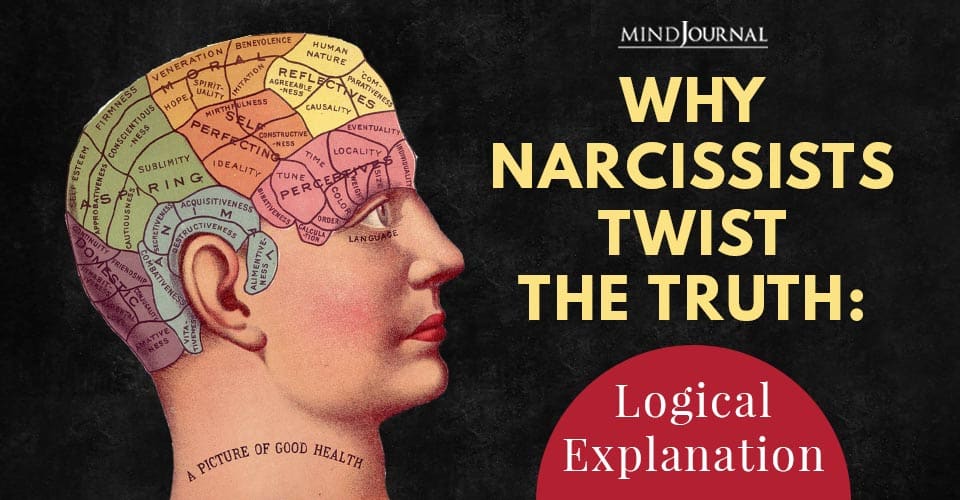Do narcissists have selective memory? Why is that narcissists are never able to tell the truth? Explore the logical reasons why narcissists twist the truth and almost always put the blame on you, for not telling them things in the first place.
Do Narcissists Have Memory Problems or Are They Just Liars?
Written By Dr. Elinor Greenberg
If you are in a relationship with someone who has a narcissistic personality disorder, you may start to wonder if your narcissistic mate has memory problems. Your mate makes promises to you and then claims to have never said anything remotely like what you know you heard.
Or, after a lot of negotiating the two of you reach some agreement about where to go for dinner, and then you find out your mate made a reservation at a different restaurant that you told him you hate.
When you complain, your mate says: “You should have been clearer. I never heard you say that you preferred the other one.”
After a few of these experiences, you are likely to become concerned. Is your mate a liar? Is he or she just ignoring everything you say because your opinion does not count? Or, does your mate have some form of early dementia that is interfering with his or her memory?
Related: How Narcissists Make You Physically Sick and 5 Ways To Restore Your Health
Why Narcissists Twist The Truth: Logical Explanation
The reality is that most people with narcissistic personality disorder have perfectly adequate memory. It is just highly selective and focused on what they want to be true.
They take Ray S. Jones position: “The truth is what we say it is…prove to me this desk is not a cow!” Or as Winston S. Churchill said: “Men occasionally stumble over the truth, but most of them pick themselves up and hurry off as if nothing had happened.”
Most narcissists tend to be very narrowly focused on whatever they want now. They could care less about what you want or any past promises that they made to you. The actual truth is not very important to most people with narcissistic personality disorder.
If acknowledging the truth would interfere with them getting what they want right now, most narcissists will simply ignore it or rationalize it away.
But how do they do this? Why is their relationship to the truth and what they remember so different than the average person’s?
Note: In this post I am using the terms narcissist, narcissistic, and NPD as shorthand ways to refer to someone who qualifies for a diagnosis of narcissistic personality disorder.
Narcissists lack whole object relations.
Whole object relations (WOR) is the capacity to see people in a stable, integrated, and realistic way as having both liked and disliked traits. If you do not have WOR, you cannot form an integrated picture and instead see yourself and other people as either all-good or all-bad.
In the case of people with narcissistic personality disorder, this means that there are only two basic categories:
Special = All-Good
Worthless = All-Bad
How does not having WOR affect memory?
There is too much interpersonal data for our senses and our brains to process all of it. As a result, each of us tends to automatically prioritize what is most important to us.
We are likely to notice things that relate to our current desires, fears, past traumas, or unmet needs from the past that are still active in the present.
This means that when narcissists see you as special (all-good), they are literally only noticing and remembering the things about you that fit this view. All other potential data that might challenge this view goes unnoticed including any past history that might contradict this impossibly lopsided view.
Similarly, when they see you as worthless (all-bad), they only remember and notice the things that support this view of you.
You can think of this process as a form of unconscious confirmation bias: the tendency to only notice that which supports your current assumption and ignore any data (including memories or context) that would contradict your current assumption.
Related: 11 Ways Narcissists Use Shame to Control Others
Narcissists lack object constancy.
Object constancy (OC) is the ability to maintain the big picture of your whole relationship, especially the good parts and good feelings towards someone, when you are angry, hurt, frustrated, or disappointed by the person.
If you do not have whole object relations, you will not have object constancy either because OC depends on being able to see both sides of a person at once.
How does lacking object constancy affect memory?
During a fight, as soon as people with a narcissistic personality disorder get mad at you, they will now see you as all-bad and “forget” their past positive feelings for you—or explain them away as mistakes in an attempt to resolve the discrepancy between their current feelings towards you and any past positive feelings.
You are a terrible human being. If I ever said otherwise, it was because I was taken in by your ‘nice’ act.
They can say something as nonsensical as the above because they do not realize that they have not yet developed the capacity to form an integrated view of people—something that most other people learn by the age of 6.
Therefore, they have to rationalize away the inconsistency between their current view of you and their past view because they can only alternate between seeing you as either all-good or all-bad.
When narcissists are emotionally triggered, they only focus on how they feel in the moment.
People with narcissistic personality disorder are usually focused on their current thoughts and feelings, not how they felt twenty minutes ago or how they might feel in the future.
Once something triggers a strong negative or positive response, that reaction takes centre stage. People with NPD then act as if their current emotional state and way of thinking is all there is and will last forever.
Thus, if you are dating someone with NPD, when your lover feels great about you, he or she may start making plans for the future with you—even though the two of you hardly know each other. “Let’s go to Rome together. I can’t wait to show you my favourite restaurant.” Then something you do triggers a negative reaction and suddenly those plans are history.
Narcissists are overly focused on making their point right now and the larger context is unimportant to them.
Again, this is a case where the person with NPD loses perspective because what they feel and want now is all that matters to them.
Related: 20 Narcissistic Terms: A Glossary of Terms for Understanding Narcissism
How does this affect memory?
Narcissists prioritize the memories that are important to them. Because they lack emotional empathy, memories about how you feel are much less important to them than whatever is on their mind right now.
For example, twenty minutes ago you came home from work exhausted. You told your narcissistic mate that you were heading into the bedroom to take a nap. But, your mate acts like he or she never heard that and also seems to have forgotten that you did not sleep well last night.
What is going on?
They have something they want to talk with you about right now. They have not lost their memory; they just do not care how tired you are. All they care about is making their point right now—even when it is as trivial as: “We need to find a new dry cleaner” or “I don’t like the way you loaded the dishwasher.”
Punchline: People with narcissistic personality disorder can seem to have memory problems. They may have trouble remembering the past or the big picture when they are feeling strong emotions in the present.
They can forget that they ever said, “I will love you forever” or that they happily agreed to be your plus one at your cousin’s wedding because right now they are angry with you for being late to dinner.
Similarly, although they were incredibly mean to you last night, they woke up in a good mood and expect you to be just as cheerful.
Memory problems? No. These are problems of self-centeredness.
Do you agree?
Written by Elinor Greenberg
Originally appeared on Psychology Today











Leave a Reply